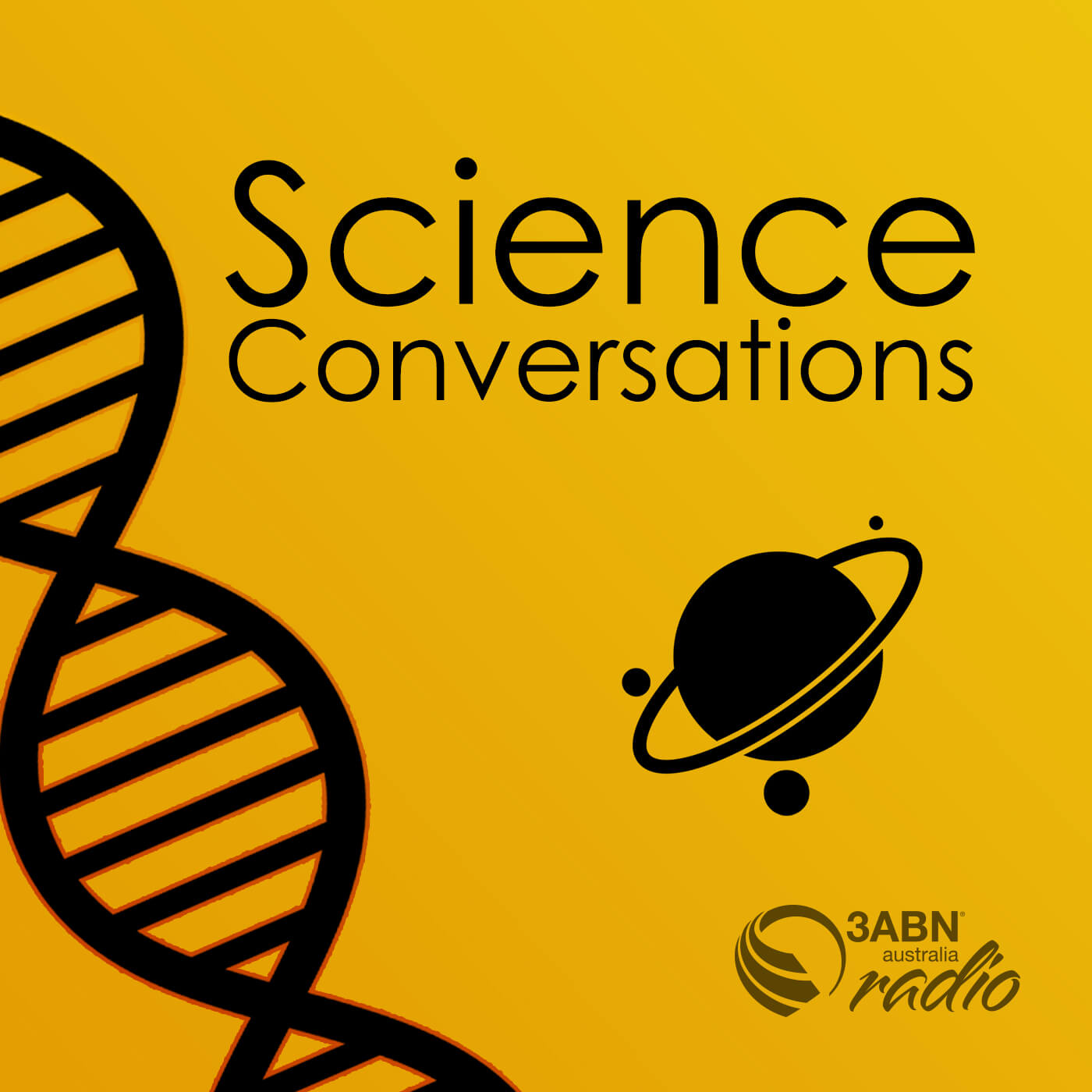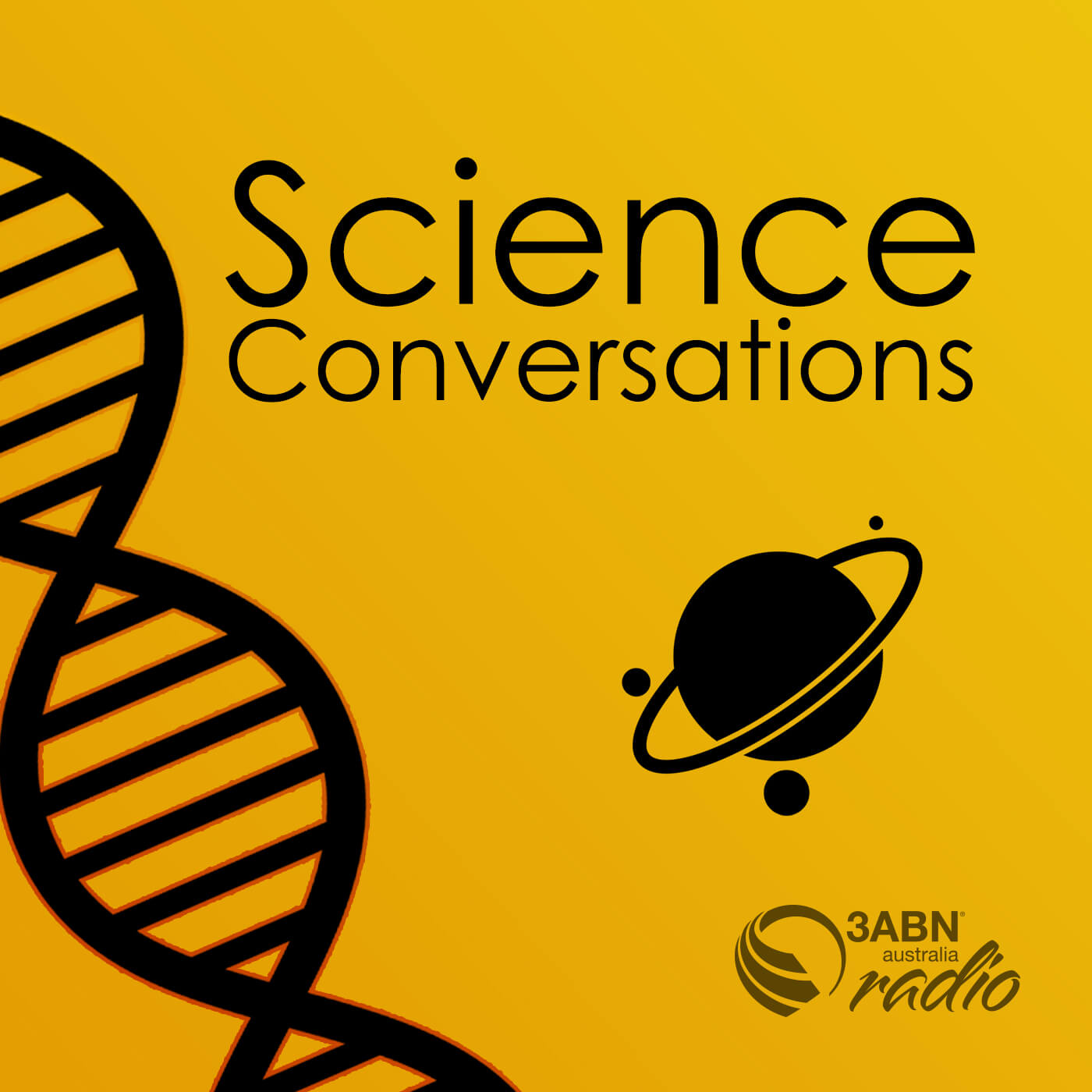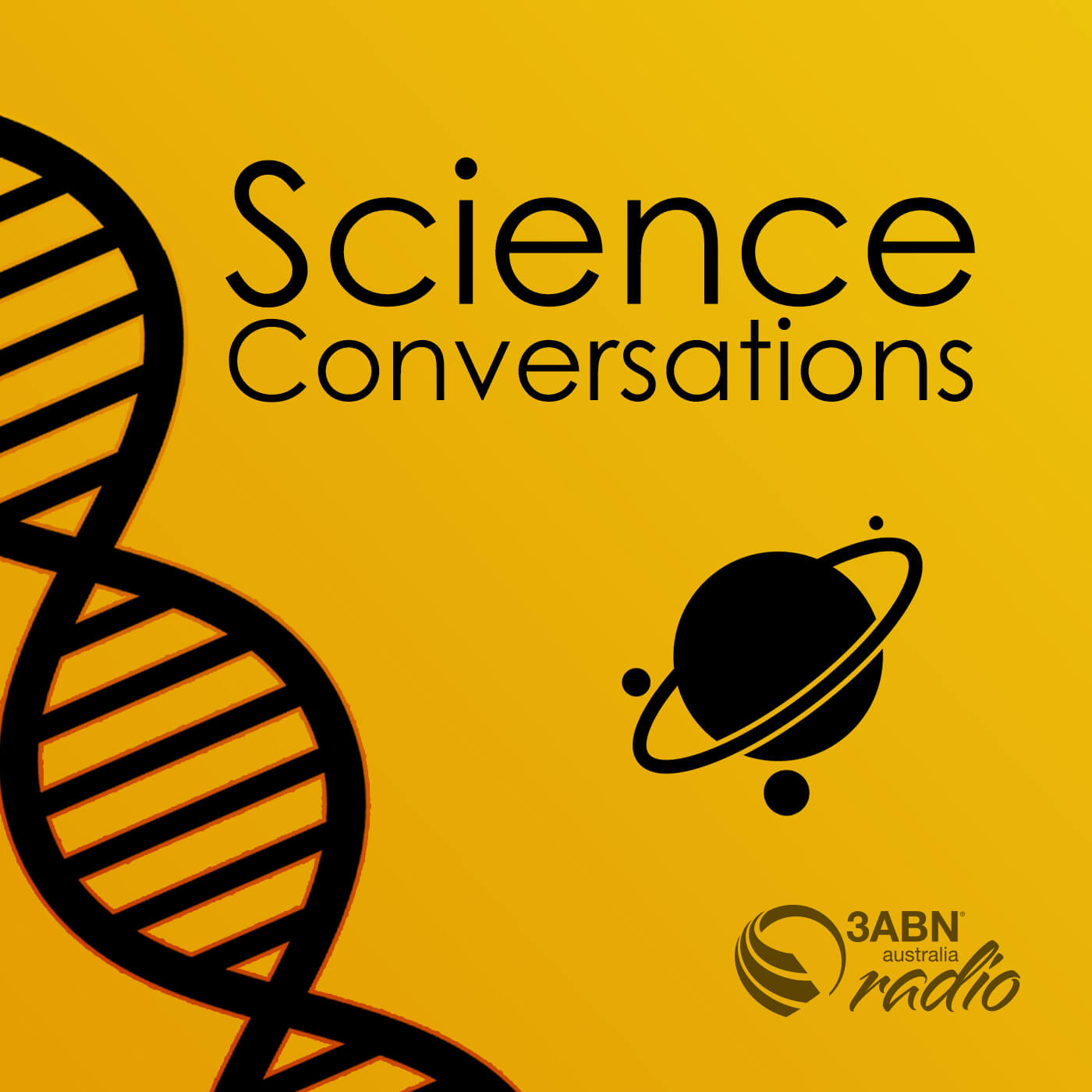Episode Transcript
SPEAKER 1
Welcome to Science Conversations. I'm Kaysie Vokurka. Are there problems with the Big Bang theory? Joining me to discuss part three of this topic is Dr. John Ashton. Welcome to the program once again.
SPEAKER 2
Hello Kaysie.
SPEAKER 1
Dr. John Ashton has written a book entitled Evolution Impossible: 12 Reasons why Evolution Cannot Explain the Origin of Life on Earth. And we've been going through chapter 11 of this book. as part of this little set of episodes. And in chapter 11, you tell that there are a number of serious problems with the Big Bang Theory, which are quite technical, which you don't have the ability to go into in this book. And that it's also possible to propose alternative cosmologies or ways of explaining these things. because we cannot necessarily prove how the universe came about. We can't test that, like we weren't there, so how do we know? Can you talk about some of those alternative cosmologies?
SPEAKER 2
Yeah, sure. Well, this is it. Some scientists have recognized the problem with the Big Bang theory. And they propose totally different sort of physics scenarios and different sort of theories to understand the nature of matter and this sort of thing, string theories and so forth like this. But there's also, all of these models working on an expanding universe, but there's also growing evidence now that maybe the universe isn't expanding either now anymore.
SPEAKER 1
Okay.
SPEAKER 2
And this has been pointed out, there was a number of papers that were published, well, nearly two decades ago now in the American Institute of Physics, particularly at their conference back in 2006. And one of the things was that if the universe really was expanding, then we would expect the time dilation phenomena to be observed. So for example, we would accept two light curving, broadening effects for Subnova, that's exploding stars, But now, as we study the light from the supernova light, there's only a single broad band. And these again provide strong evidence that the Big Bang never happened. So again, here we have more evidence that the Big Bang didn't happen. Other data that has also been reported is the brightness measurements from galaxies is consistent with the calculations for a non-expanding universe. So we've got, again, more evidence that even if we, people are developing models for expanding universe, but hang on, maybe the universe isn't expanding now. The Bible talks about how God did stretch it out, but maybe that stretching has stopped now. And again, this is, you know, some interesting observations that we occur, if the Bible says God stretched it out, but it's a supernatural event, then we would not expect necessarily these phenomena to occur because God created it as he wanted it created. I think one of the issues is.
SPEAKER 1
That.
SPEAKER 2
Scientists are desperately clinging to this Big Bang model or some model along this way, particularly involving inflation. They've got to, in all the different models that they have, They've got to somehow have energy and matter expanding in some hypothetical fourth dimension faster than the speed of light. So we've got to have inflation theory. And this really underpins any of these models at this particular time. And it was interesting that a few years ago now in 2017, Some top astrophysicists from Princeton Harvard published a paper in Scientific American called Pop Goes the Universe. And essentially in this paper they said, look, essentially inflation theory isn't even science. So theoretically we shouldn't even be teaching the Big Bang theory in science classes. You know, because it can't be falsified.
SPEAKER 1
And.
SPEAKER 2
There were claims, of course, that the Big Bang theory can be falsified. So I thought it was quite interesting to read when their paper was published in 2017, it caused quite a stir among the scientists because essentially you had these top astrophysicists from Princeton and Harvard, top universities in the world, saying, Hang on, there's a major problem out there. Their comment came after findings after the latest data came from the different space telescopes that we had sent out on spacecraft. And when that information came in, journalists were reporting all this, oh, new study supports the Big Bang theory and so forth and so on. Hang on, this is an incorrect interpretation of the data. The data isn't supporting the Big Bang theory at all. And that's when they published their paper, Pop Goes the Universe, and listeners can look it up, Scientific American, February 2017. Now, Dr. Jake Herbert, who is also a physicist, he did a summary because it's quite a high tech technical paper, but I'll just read out his paper that was published. And he wrote, In February 2017, an issue of Scientific American contains an article by three prominent theoretical physicists from Princeton and Harvard. who strongly question the validity of cosmic inflation, an important part of the modern Big Bang Theory. They argued that inflation can never be shown to be wrong. It cannot be falsified, and therefore inflation isn't even a scientific hypothesis. So this physicist is saying these guys have showed major problems with the Big Bang Theory. It's impossible to prove it wrong. Inflation theory, and then it goes into a bit of history. Inflation theory was proposed by physicist Alan Guth who saw who to solve a number of serious problems with the early versions of the Big Bang models. Supposedly the universe underwent an extremely short period of accelerated expansion right after the Big Bang. However, physicists later recognized this version of inflation theory was too simplistic. newer versions of inflation models have inflation stopping at different times in different places, leading to the idea of a multiverse consisting of an infinitely many pocket universes. But what? And now he refers to the actual authors of the pop goes universe paper, and he said, Anna Alyias, the John A. Wheeler Postdoctoral Fellow at Princeton Center for Theoretical Science, and Paul J. Steinhardt, the Albert Einstein Professor in Science at Princeton University, and Abraham Loeb, the Chairman of Astronomy Department at Harvard University, argued that cosmologists should seriously consider abandoning inflation theory and contemplate alternatives.
SPEAKER 1
And this is on the basis primarily that it cannot be falsified, which means it's not really a scientific process because with science you have to be able to look at data and observations to be able to see if something is valid or not. Is that correct? Is that a correct understanding?
SPEAKER 2
That was their main point, but their main point was coming out because again, the observations, the latest astronomical observations that were being reported by the space telescopes were also indicating major problems with the Big Bang Theory as well.
SPEAKER 1
And.
SPEAKER 2
It'S interesting when they published that paper, Pop Goes Universe, 33 high profile physicists, including Alan Guth himself, Stephen Hawking, who's now dead, and they just a whole number, Steven Weinberg, some of the other top, and Lawrence Krauss, they published a rebuttal a month later in Scientific American or on their website actually. And however, they failed to answer the charges that these astronomers from Princeton and Harvard raised. In fact, one particular argument that they used was an emotional argument, though not a scientific argument. What they wrote was this. So these are the detractors that were trying to defend the Big Bang theories, right? So these are other top scientists, and I think it's very important for listeners to understand this, right? That you can have these top scientists, but they, in my view, become so blinded by their own worldview that they begin to miss the point. They can't, they begin to lose their actual objectivity. and it's interesting because this is what they wrote in their response. This is the people who wanted to, these are the scientists, the 33 scientists who were still trying to defend the Big Bang theory. They said, according to the high-energy physics database Inspire, there are now more than 14,000 papers in the scientific literature written by over 9,000 different scientists that use the word inflation or inflationary in their titles or abstracts. Then they and they say, By claiming that inflationary cosmology lies outside the scientific method, ISN L, they're the authors of the original paper, are dismissing the research not only of all the authors of this letter, but also that of a substantial contingent of the scientific community. so essentially what they're saying, well, look, look at all these papers that have been published on the Big Bang theory and on inflation theory. And so what these guys reply is, however, whether or not inflation theory falls within the scientific method or whether or not it is correct, it's not determined by how many inflation related papers have been established. We don't arrive at truth by counting noses. You arrive at truth by looking at the evidence.
SPEAKER 1
Yes.
SPEAKER 2
And we know that large numbers of people can be wrong. And so what they're saying is that they're trying to defend their situation. They're not providing evidence. They're just saying, well, there's lots of other people that think this way.
SPEAKER 1
Yes.
SPEAKER 2
But they're still not providing any evidence. And so the author of this review paper says it's understandable that inflation theorists, many who've spent most of their careers working on inflation models, have a deep investment in the subject. But an appeal to the sheer number of inflation papers published is an emotional argument. It's not a logical one. This is where the public needs to understand, just because a whole lot of scientists are speaking out and saying, for this or that or that. It doesn't mean that it's right.
SPEAKER 1
Yes.
SPEAKER 2
We need to really look at the evidence. Where is the evidence pointing to? And quite clearly, when we look at the models of the origin of the universe, they can't explain it. No known model in physics or astronomy can explain our origin of the universe and the data fit the observed way the universe is set up. There's no model out there at the moment that works that can't explain, that can explain the observed data out there. And this is very, very other important thing. And it's interesting, this guy, Dr. Herbert, Dr. Jake Herbert is obviously a Christian, and he writes this comment and he says, Many Christians are tempted to accept that the Big Bang was the means that God used to create the universe. But the Big Bang flatly contradicts Scripture and is riddled with serious scientific difficulties, some of which have been highlighted in this recent spat among leading scientists. Furthermore, where would it leave Christians if secular scientists should ultimately abandon the Big Bang? Christians should resist the temptation to accommodate Genesis into the fallible, ever-changing ideas of secular scientists. And it's very important to recognize that these scientists that were still trying to defend the Big Bang, some of them have actually admitted, yeah, okay, you can't actually falsify the current theory because you can make the Big Bang theory fit whatever you want or inflation theory fit whatever you want. It really isn't falsifiable.
SPEAKER 1
Because that's how they've built it, isn't it? That you can tweak this and tweak that to make it fit, as opposed to being, hang on a minute, the data says this, it doesn't fit. So we need to come up with a new approach.
SPEAKER 2
And that's why I think it's so morally wrong that Big Bang Theory continues to be taught in our schools and universities. And we're ignoring the overwhelming evidence that we have, particularly from fine tuning, of a supernatural, super intelligent creator.
SPEAKER 1
Wow. Tremendous thing to consider. Thank you for sharing those thoughts. And I sense the burden on your heart for that as well, that many more people would understand this more clearly and be able to, yeah, I guess see another side to the story that's being painted so publicly. and in the education systems and everything like that. So thank you so much for sharing on this topic. We look forward to looking at more topics with you. And next time we are going to examine the question, are there any scientists that believe in creation? Be sure to join us for that.


